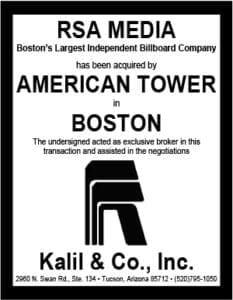
My friend and OAAA Association Counsel Allen Smith wrote an excellent article in the July 10th edition of Billboard Insider on the Supreme Court’s June 28, 2024 decision in Loper Bright Enterprises vs Raimondo. As Allen explained, The High Court effectively eliminated the deference afforded federal administrative agencies in their interpretation of ambiguous federal statutes, which had been condoned since 1984 under the so-called Chevron Doctrine.
Allen also accurately noted that, while the decision involved federal instead of state regulations, Loper Bright might also be used as a precedent to examine the rulings of State Departments of Transportation and their administrative rules. For example, Texas, like virtually every other State in the Union, has passed legislation incorporating the basic terms of the Federal Highway Beautification Act. This statute, Chapter 391 of the Texas Transportation Code, authorizes the Texas Transportation Commission to promulgate administrative regulations on the height, size, spacing, lighting, permitting, licensing, and other aspects of billboard erection and operation. The Texas Department of Transportation (TxDOT), in turn, enforces and interprets those regulations. In doing so, TxDOT often issues “guidance memos,” such as the procedures to be utilized in measuring the height of billboards from the ground or adjacent thoroughfare, or for determining whether a business qualifies as commercial or industrial in a permit application, or from what part of the sign should a measurement be made for spacing between signs or proximity from a ramp. These TxDOT interpretations have traditionally been accorded deference in permit cancellation appeal proceedings, which by the way are conducted by State employees in hearings before the State Office of Administrative Hearings (SOAH), rather than in civil court or before a jury. And, finally, an unfavorable ruling by the Administrative Law Judge on the cancellation is pursued by the billboard permit holder to civil court, but under the challenging “substantial evidence rule,” rather than a de novo review starting anew.
This Supreme Court, and perhaps even current societal tends across the Country, seem to support increased restraints on administrative agencies, sometimes derisively characterized as the “Deep State.” It will be interesting to see if the principals in Loper Bright are extended, including to billboard regulation by State administrative agencies.
To receive a free morning newsletter with each day’s Billboard insider articles email info@billboardinsider.com with the word “Subscribe” in the title. Our newsletter is free and we don’t sell our subscriber list.
Paid Advertisement

















